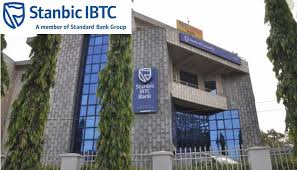
By Segun Afolabi
The Nigerian Association of Chambers of Commerce, Industry, Mines and Agriculture (NACCIMA) has expressed serious concerns about the worsening and depressing socio-economic conditions in the country, citing the need for an appropriate policy mix and implementations that can lead the economy back to recovery.
According to the chamber, the present socio-economic conditions have left many industrial and manufacturing concerns in comatose, as some others have closed down, leaving many more Nigerians to join the unemployment market and resulting in more Nigerians in abject poverty with the consequent social menace.
NACCIMA President, John Udeagbala, while speaking with journalists yesterday, noted that fiscal and monetary policies are at variance with each other with an unclear policy on currency depreciation, with inflation and exchange rates sky-high and worrisome.
The chamber also cited issues bordering on the level of insecurity in the country, adding that such issues not only harm economic activities but remain a threat to the country’s political structure as they might disrupt the coming 2023 general elections except urgent steps are taken to not only contain but also curb them.
“The increasing unemployment rate in Nigeria has become very worrisome. NBS statistics indicate that over 60 percent of the working age is below 35 years of age and the unemployment rate among this class stands at about 60 percent. This is besides the figure for under-employment among the working class.
“Experts have put the unemployment rate in Nigeria at approximately 40 percent as of 2021 and this is extremely disturbing considering the social crisis that can result therefrom. As there has been no clear-cut government policy on employment generation since 2021 till date and with more companies closing down and many more graduates joining the unemployment market, we are highly worried that the nation is heading for the tipping point in its unemployment problems.
“There is an increasing dearth of semi-skilled labor in the industrial sector in Nigeria presently because of the declining technical institutions /education in the country. Several recommendations have been made and we urge that no stone should be left unturned in addressing this economic challenge, as the urgency of addressing this issue cannot be overemphasized”, Udeagbala added.
On public debt, he called for urgent structural reforms of our economy towards a transformational production economy and efficient management of the country’s debt profile to enhance productivity.
“It is now obvious that the current levels of debt servicing payments are considered too high and unsustainable, given the dwindling government revenues. Nigeria indeed has come to a terrible crossroad and what is more worrisome is that N11.34 trillion (over 50 percent of 2023 budget) will be financed through borrowings.
“We believe that the cost of running this government is too high and unsustainable and therefore urge the government to cut costs and save the economy from a shut-down”, he argued.
On the new forms of taxation on the private sector, he said the 2022 Finance Bill attempts to add more financial burden on the private sector which is presently struggling to keep businesses afloat.
According to him, scarcity of foreign currency, poor business environment, high cost of energy amongst other macroeconomic indices heavy weights that toll against businesses, especially the organized private sector, adding that any further tax increases on businesses may simply lead to shutting down of many companies and worsen the already bad unemployment crises in the country.
Meanwhile, the chamber noted that plans are underway to organise a Digital Economy Conference themed “Promoting a Vibrant Digital Economy – a Catalyst for Economic Growth in Nigeria”, by the end of January at the Abuja Chamber of Commerce Conference Centre in a bid to showcase the benefits of a digital economy as well as job creation.






